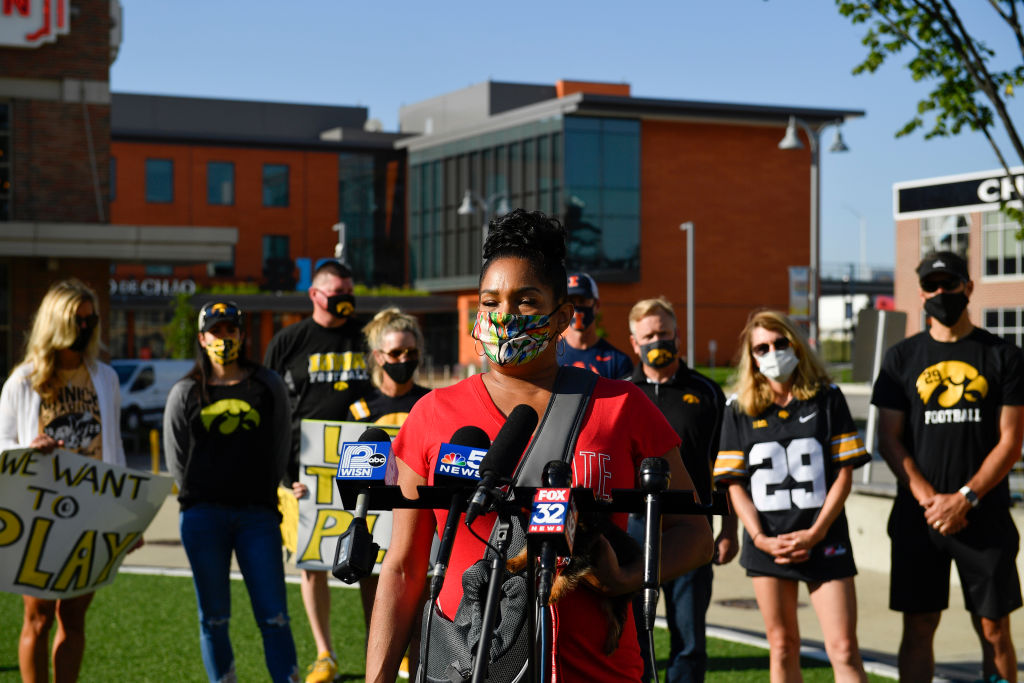30-35% of Big Ten athletes testing positive for COVID-19 had myocarditis
The reason why the Big Ten canceled football is because of the insecurity around the health of Big Ten athletes
The reason why Big Ten football was canceled this year may have gone beyond the coronavirus, new reports are saying. According to Centredaily, 35% of college athletes who tested positive for the virus also had myocarditis, a potentially fatal inflammation of the heart.
Read More: Dwayne ‘The Rock’ Johnson, wife and kids test positive for COVID-19
The information was revealed at a meeting of the State College area school board of directors on Monday night. State College, Pennsylvania is the town that encompasses Penn State University. PSU’s director of athletic medicine, Wayne Sebastianelli, shared the following information.

“When we looked at our COVID-positive athletes, whether they were symptomatic or not, 30 to roughly 35 percent of their heart muscles (are) inflamed,” Sebastianelli said. “And we really just don’t know what to do with it right now. It’s still very early in the infection. Some of that has led to the Pac-12 and the Big Ten’s decision to sort of put a hiatus on what’s happening.”
COVID-19 has had an immeasurable impact on the sports world, forcing postponements of games across sports leagues. It impacted college football the most, as conferences scrambled to respond to the threat of infection on the eve of their seasons. The Big Ten, which includes football powerhouses like Penn State, along with Ohio State, Nebraska, Wisconsin, and Michigan, canceled their season in August.
“The mental and physical health and welfare of our student-athletes has been at the center of every decision we have made regarding the ability to proceed forward,” Big Ten commissioner Kevin Warren said.
“As time progressed and after hours of discussion with our Big Ten Task Force for Emerging Infectious Diseases and the Big Ten Sports Medicine Committee, it became abundantly clear that there was too much uncertainty regarding potential medical risks to allow our student-athletes to compete this fall.”

This is just one example of how the lingering impact of the coronavirus can cause lingering heart issues is the case of University of Houston defensive lineman Sedrick Williams, who opted out of playing the current football season in August after testing positive for COVID-19 in June.
“As a result of the virus, I’ve had complications with my heart and I really don’t know the outcome or what’s in store for me in the future,” Williams wrote in a Facebook post in August. “I just know that my life is more precious to me than football could ever be. I’ve decided to opt-out of the 2020 football season due to these complications. I won’t take this year for granted.”
Though the PAC-12 conference, the Ivy League, and the MEAC, the conference that includes sports teams across historically Black colleges and universities canceled fall sports, the ACC, SEC, and several other conferences will play amended schedules this fall, according to Deseret News.
Read More: States should prepare to distribute COVID vaccine by late October: CDC
Depending on how the coronavirus/fall flu season shapes up, some college sports may move to a spring schedule, including the Big Ten.
Have you subscribed to theGrio’s podcast “Dear Culture”? Download our newest episodes now!
